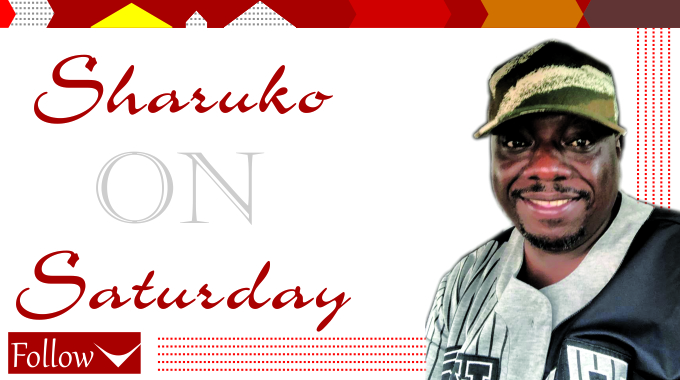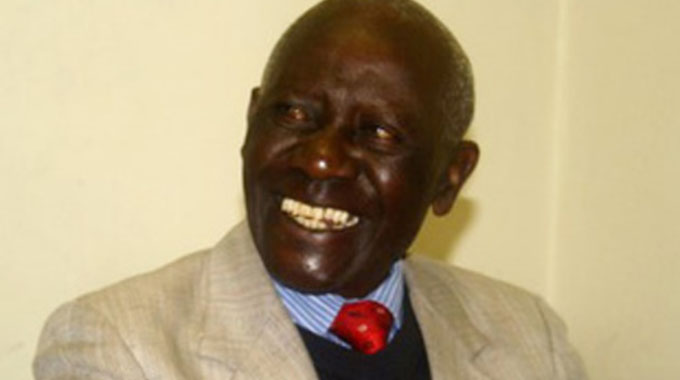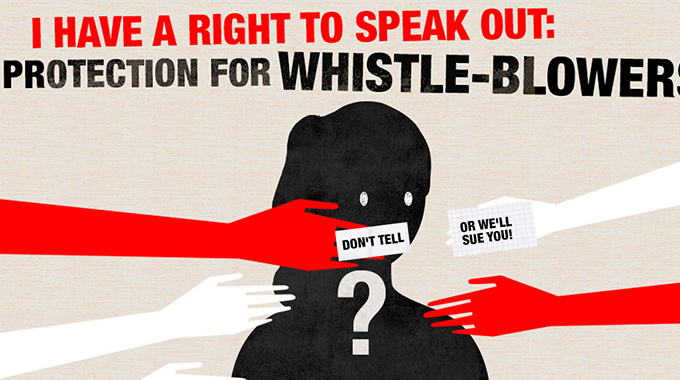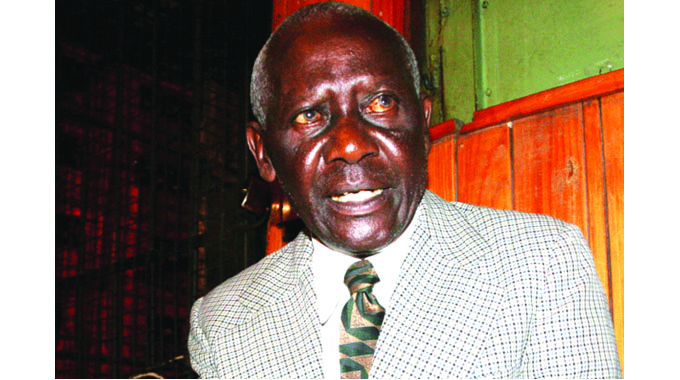IT WAS ALL A DREAM, I USED TO READ PARADE MAGAZINE, SHAYA AND SHAMBO IN THE LIMOUSINE

I HAVE always told my close friends that if I hadn’t become a journalist, it’s very likely I would have ended up being either a Baptist preacher, or a songwriter, with a bias towards rap music.
I certainly would never have become a rapper, sadly, I was never given a voice to match.
But, I’m pretty sure I would have made a living working in the background in the studios, writing smash-hit songs for some fine rap artistes.
Probably, writing lyrics, like:
“It was all a dream, I used to read Parade magazine
George Shaya and Joel Shambo up in the limousine
Hanging pictures on my bedroom wall
Way back, when I used to wear my red-and-black Man U shirt
On Sundays my mum would take me to the shopping mall
With the hat to match, remember the Jarzin Man, oh he used to raise the bar
You never thought that song-writing would take me this far
Now I’m in the limelight, because I write tight
Time to get paid, blow up like Chakari’s gold trade
Born a sinner, because they never thought a miner’s kid could be a winner
Remember when I used to eat just beans for dinner
Peace to the Gepa Chief, Solo Banda, Jim Banda, Sam Mwale, Charlie Mwale, Dzvuto Phiri
Iwell Chirwa, Mutambarika Chirwa, Gomanikwende, Astood Zulu, Chris Dhumbe Phiri
And all the Chakariboys in the struggle
I’m blowing up like you never thought I would
Call Chakari, same number, same hood, it’s all good
Birthdays were the worst days, now we sip Johnnie Walker when we thirsty
And if you don’t know now you know why we Chakariboys will never be nasty.”
I also came very close to becoming a Baptist minister, back at my mission school, deep in the Sanyati rural areas on the fringes of where Mashonaland West and the Midlands meet.
In my final year as an Upper Sixth student at a high school run by some missionaries, fate almost swept me into the arms of the Baptist world — complete with an induction and education in the United States.
Interestingly, it happened by chance, with the resident pastor known as Ndhlula if I’m not mistaken, being unavailable that Sunday, a replacement came for our weekly service.
The challenge, though, was he preached in Shona and — given we had the usual group of white missionaries from the adjacent hospital and some religious visitors from the United States — someone had to translate all that into English.
When the challenge was thrown to the students, all eyes turned to me and, before I knew it, I was up from my seat and, with the confidence and arrogance of an Upper Sixth student, marched to the pulpit.
After a shaky start, I grew in confidence and towards the end I was cruising, even completing the verse before the pastor had reached those words for translation, the only major bleep coming when I described “kudenga”, as the “sky” instead of “heaven.”
As I left the church, the visiting Americans called me and, after a discussion, they told me they were offering me a scholarship to go to the United States to study to become a Baptist minister.
When schools closed for the term, I went home and broke the news to my old man who dismissed it outright, reminding me I had a responsibility to complete my education and, in time, secure a job to take care of my siblings because he wouldn’t be around forever.
That was in ’89 and this year marks 30 years of events that eventually shaped my life, my journey, my adventure and explains why I find myself here today instead of the studios, making music, or preaching the gospel as a Baptist minister.
FROM CHIPOLOPOLO WINNING IN GABON IN 2012, TO NEIL AMSTRONG STEPPING ON THE MOON IN 1969, EVERYTHING HAPPENS FOR A REASON
I’m a strong believer that things just don’t happen, in sport as in life, but they happen for a reason because, if that wasn’t the case, how do we explain that the Gabonese capital of Libreville, which in 1993 became the symbol for the worst disaster to hit Zambian sport, would transform itself into the city that provided the stage for Chipolopolo’s finest hour when they won AFCON in 2012?
How do we explain how Senegal — the very team those fallen Chipolopolo stars were scheduled to face when their plane came down in 1993 — would be the first team to fall to the Zambians in that successful 2012 AFCON adventure, with our neighbours winning that opening group match 2-1?
How do we explain that the Zambians’ first goal against the Senegalese came in the 12th minute, which somehow coincided with the fact that the 2012 AFCON finals would end on February 12? Or, that their second goal came in the 21st minute, which also somehow coincided with the fact that the same tournament started on January 21? Maybe, unlike us here, that is why our colleagues in the First World attach a lot of value to the anniversaries of iconic events — like how the United States have been partying all month, celebrating the 50th anniversary of the time when Neil Armstrong became the first man to step on the moon in July 1969.
Somehow, it had to be ’69, and for a good reason too.
After all, this was the year the Internet was created, the year the Beatles had their last public performance, the year the first Boeing 747 jumbo jet was flown, the year American teenager known as “Robert R” died in St Louis, Missouri, from a condition that baffled medical experts, which later in ’84, was identified as the earliest confirmed case of HIV/AIDS in the United States.
The year Antonio Conte, Michael Schumacher, Brian Lara, J-Lo, Puff Diddy and Jay-Z were born, the year regular colour television broadcasting started on BBC1 and ITV in the United Kingdom and the year the Football War between Honduras and El Salvador broke out.
The year this country played its first World Cup qualifiers against Australia, and also the year it was thrown out of international football before its readmission at Independence.
The year the first Soccer Star of the Year was crowned in this country, with the award going to George Shaya, and the year the United Kingdom and Rhodesia severed diplomatic ties.
Today, whichever way you look at DStv, you are confronted by images of those American astronauts landing on the moon, Buzz Aldrin saluting the US flag, and everything about Apollo 11.
Tomorrow, at Rufaro, something special will explode into life, but because we are a people allergic to history, who don’t value what others did in the past, who only think of the present and tell ourselves we are the greatest generation that ever lived, we have consigned it all into the dustbin.
Well, in another country, another capital and another domestic Premiership – this week would have been a very special occasion and a grand festival of celebrations to remember a past pregnant with rich memories, incredible sights and beautiful sounds which will last a lifetime.
A special anniversary of the Harare Derby — a football contest whose original storyline appeared to have been scripted in heaven before the Devil thrust his hand into the mix and poisoned the landscape — which, at the peak of these confrontations, represented excellence in domestic football.
Of course, the first Harare Derby was played in 1976, fair and fine, but it was in 1979 that the gusty green challengers, originally from Manchester Road in the Southerton Industrial area of Harare, first tasted the ultimate glory of winning the championship to now enable them to take on their great rivals as equals.
And this year marks 40 years since the Green Machine finally walked into that special arena reserved for champions as deserved winners of the biggest prize on the domestic football scene, a title that finally gave them the rights to take on their eternal rivals without being told to first win the championship.
JUST LIKE LIVERPOOL AND UNITED, THE DERBY RIVALRY SHOULD BE SPICED UP BY RECORDS, STATISTICS AND LANDMARKS
Back in January ’94, I was just 15 months into this job at this newspaper and, my team Manchester United, had just won the league title for the first time in 26 years eight months’ earlier.
And, when they visited Anfield that January, they were confronted by a massive banner from the Kop end which screamed, “COME BACK AND SING ‘OOH AAH CANTONA, WHEN YOU’VE WON 18,’’ a reminder of the vast gulf between us and them.
With only nine league titles back then, this looked like Mission Impossible, but what those Liverpool fans didn’t know was that we would do it, before they had even added to their collection, and when we got to 18, the travelling United fans arrived at Anfield with their own banner.
“YOU TOLD US TO COME BACK WHEN WE’VE WON 18…WELL, WE’RE HERE.’’
After that match, some of the Liverpool fans, interviewed, described it as the worst feeling they had ever felt at their home since they started going to Anfield.
That’s what makes great rivalries and, given this is the 40th anniversary of the year CAPS United started enjoying the status of champions, you would have thought they would have made a big deal of this derby.
Including, but not limited to, reminding their biggest rivals which of the two teams last tasted the glory of being champions and that for DeMbare it’s now five years, and counting, without the big trophy.
You would think they would have spent the week sending invites to the stars of those iconic battles of ‘79, who still live today, to come to Rufaro as special guests to witness the enduring power of the never-ending rivalry they created.
They would have spent the week sending invites to the families of those who were lost along the way, to send a representative — maybe a son, maybe a daughter or the surviving spouse — to come and grace this special occasion.
They would have sent a different, and very special, invite to the family of the late Shackman Tauro, the ultimate goal-scoring machine we nicknamed Mr Goals, Chinyaride, Bere, because, unlike others, this should have been special for him.
After all, this derby comes in the 40th year of that magical season when his goals transformed him into the Soccer Star of the Year, back in an age when this award represented pure football genius before mediocrity took over and tainted its value.
Shacky’s goals didn’t only make him a superstar, but also turned his team, for whom his dedication to their cause is one of domestic football’s greatest love story — in an era where others were lured by Black Rhinos’ promises and riches — into champions.
The first championship was delivered in ’79 and that CAPS United had to wait another 17 years for the second to be won, in ’96, puts into perspective the heroism found in the likes of Tauro and his class in that final domestic season before Independence.
It’s a significant year because it marked the end of our stay in the wilderness as outcasts from the international football family, our flirtation in the ’70 World Cup qualifiers against Australia a decade earlier, our last kick of the ball in the world occupied by others.
And, in the excitement of the new political order and a return to the world football community a Harare Derby — with the challengers finally enjoying the status that come with having won a championship back in ’79 — played out on the capital’s football fields.
It also marks 20 years since the most successful man in the derby history, both as a coach and player, Sunday Chidzambwa, last stood on the bench in this iconic fixture back in ’99.
That he coached both the two giants, you would have expected them to invite him to the big game tomorrow to see what the landscape now looks like two decades after he left.
Tomorrow, the derby returns, as it marks 40 years since the Green Machine finally came of age by winning their first league championship, and challenging their eternal rivals, Dynamos, on equal terms.
While, admittedly, it has lost some of its value along the way, its profile having been battered for years by some poor battles, questionable quality of players — when compared to those who used to feature in the matches in the ’80s and ’90s —the derby still retains a special place in the hearts and minds of many.
That is why the biggest crowd to watch a football match this season is likely to descend on Rufaro tomorrow for the latest instalment of this intra-city battle between Dynamos and CAPS United, which generates interest far away from the capital, to all parts of the country and beyond our borders.
It’s a pity, a massive occasion to market it using the events of 40 years ago, when CAPS finally came of age, has been lost and I don’t need to be a Baptist preacher, or a songwriter for a rap music label to see that they could have done things differently.
But, who am I to tell them because I know they will just dismiss all this, telling each other, don’t you know Robson, he is just a dreamer, dreams about being some Godfather and all this “is just a dream, because he used to read Parade magazine, George Shaya and Joel Shambo up in the limousine.’’
To God Be The Glory!
Come on Warriors!!!!!!!!!!!!!!!!!!!!!!!!!
Khamaldinhoooooooooooooooooooo!
Text Feedback — 0772545199
WhatsApp — 0772545199
Email — [email protected] [email protected] You can also interact with me on Twitter — @Chakariboy, Facebook, Instagram — sharukor and interact with me every Wednesday night, at 9.45pm, when I join the legendary Charles “CNN’’ Mabika and producer Craig “Master Craig’’ Katsande on the television magazine programme, “Game Plan”








Comments